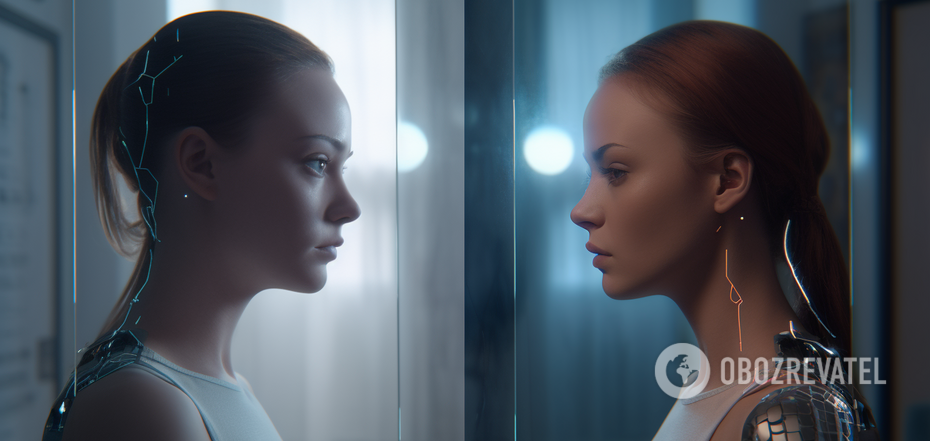Life
Artificial intelligence requires the creation of Asimov's fourth law of robotics: what it means
The large-scale and rapid development of artificial intelligence, as well as its accessibility to anyone with a network connection, puts humanity in need of a fourth law of robotics, in addition to the famous three laws formulated by science fiction writer Isaac Asimov.
This opinion was expressed by Johnny Thomson, a lecturer in philosophy at Oxford University (UK). He also formulated the fourth law itself, explaining its urgency.
Thomson notes that humanity has been convinced for centuries that it is the pinnacle of evolutionary development, and therefore many people are frightened by the very prospect of AI development.
He recalls Asimov's science fiction story "...What Do You Remember of Her", the essence of which is that humanity is nurtured in the idea that it is the dominant species on Earth and is unable to accept the fact that artificial intelligence can encroach on its "domain" and dethrone it. But people are afraid not only of this, but also of not being able to control the situation with the development of AI.
"In the blink of an eye, in the 21st century, we have gone from being the source of all wisdom and creativity to clumsy monkeys groping around with outdated tools," the philosopher wrote.
According to him, over the past few months, as it has become clear what artificial intelligence is capable of, "humans have turned from the centre of the universe into something that looks a lot like a beta test."
"Almost overnight, artificial intelligence has exploded in a big, stunning way. It creates art and books, music and films. It supports conversations and recognises faces. In short, AI does all the things we think are best in the world. In some cases, it does it even better (than humans - Ed.)," Thomson wrote.
Once upon a time, Asimov, who dreamed of the coexistence of humans and robots, formulated three laws of robotics, which are essentially "mechanisms that help humans control things."
Here's what they sound like:
- A robot cannot harm a human being or, by inaction, allow a human being to be harmed.
- A robot must obey orders given to it by a human, except when such orders contradict the First Law.
- A robot shall defend its existence as long as such defence does not contradict the First or Second Laws.
"Asimov's stories work brilliantly as science fiction, but they also show us how difficult - even impossible - it is to create seamless laws to govern any intelligence. There will always be a loophole or an exception," the scientist notes.
He adds that in Asimov's story, the robots eventually interpret humans as a being with "higher intelligence". So now humanity may face the question of whether it is enough to belong to the Homo sapiens species to be considered a human being, and how to interpret artificial intelligence if it surpasses humans in creativity and high intelligence.
"If or when general artificial intelligence comes, it will be more than just a threat to our way of life. It will be a threat to the way we understand humanity in general," the philosopher emphasises.
That is why, before AI becomes the dominant species, Thomson proposes to create the fourth law of robotics, which reads as follows:
- A robot must identify itself.
"As we move into a world of artificial intelligence that does human things better than humans, most of us will still want to know what is human and what is not... We have the right to know whether we are interacting with a human or artificial intelligence," he concludes.
As OBOZREVATEL previously reported, artificial intelligence has repeatedly misled people. One of the most recent cases occurred in late March, when a photo of the Pope in a stylish down jacket was discussed online, which turned out to be generated by AI.



























